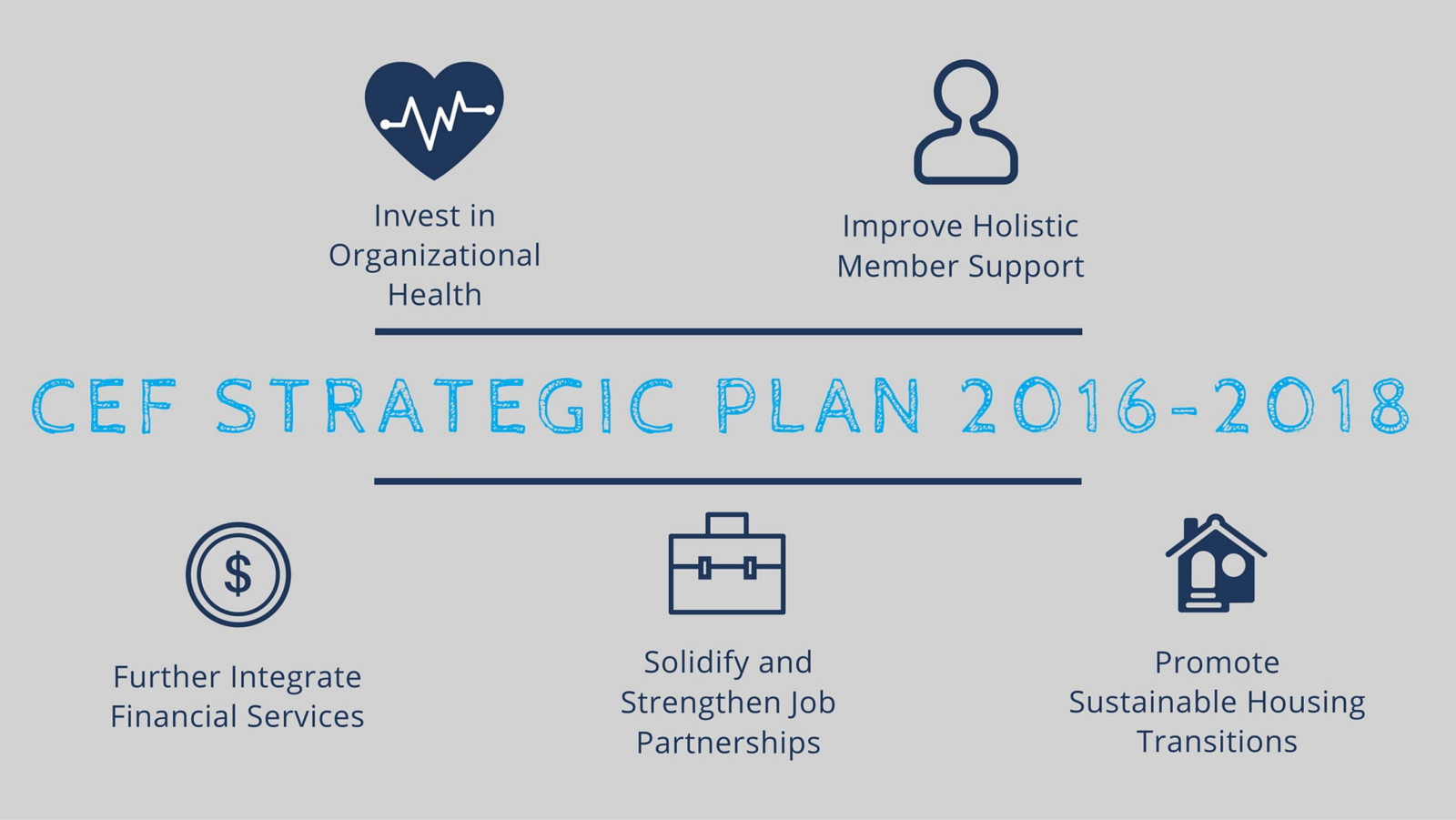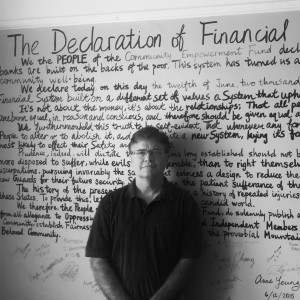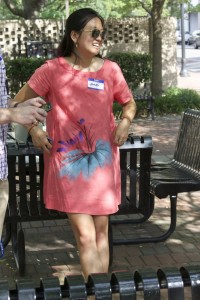At CEF we strive to “alleviate homelessness and poverty” by building relationships with members of the community, encouraging financial literacy and savings, and leveraging the passion and energy of hundreds of student volunteers. To this end, we’re excited to announce that this Fall and Winter, with the help of Orange County Partnership to End Homelessness (OCPEH), we will be launching an Integrated Services Center in our Chapel Hill office that marries our efforts with those of partner organizations in the area.
Many CEF advocates, members, donors, and board members understand deeply that the conditions that lead to poverty and housing insecurity are nuanced and complex. In most cases, there is no “quick fix” to the challenges members encounter. Rather, members must confront a range of issues—systemic, health-related, legal, and environmental—before becoming financially independent and healthy. Organizationally, we understand that in order to provide a quality and whole-person approach to working with members, we must collaborate and integrate services with partners and we are thankful that there are many organizations in Orange County that are able to stand with CEF as we aim to fulfill our mission.
We hope to build on the success of OCPEH’s 100,000 Homes Task Force, which meets monthly and seeks to collectively solve the problems some of our most vulnerable community members are encountering. We believe the next step for our community is direct and continuous collaboration in the service environment.
With financial support and encouragement from OCPEH and our early partners, Housing for New Hope, Critical Time Intervention, Durham VA (HUD-VASH), Orange County DSS, and Love Chapel Hill, we are piloting the Integrated Services Center from mid-August 2015 to February 2016 for the purposes of:
- Improving program member outcomes in employment, housing, financial literacy, mental health, and health access by providing whole-person support in a setting that reduces unnecessary barriers;
- Streamlining members’ access to quality person-centered and cross-program services that facilitate the path to self-sufficiency and well-being;
- Reducing the need for duplication of services between agencies;
- Leveraging the strengths and capacities of a variety of organizations and their complementary services.
This is a new and exciting endeavor, which will undoubtedly test the ways in which agencies and organizations effectively share information. However, we are certainly not starting from scratch. The ISC is modeled after the templates, research, and rich experiences of leading national agencies and foundations like the Local Initiatives Support Corporation (LISC), United Way, and the Annie E. Casey Foundation, et al. We believe, with these examples and extensive research to guide us, the ISC will be an innovative mechanism for social service delivery in the area.
To be sure, we will be scrupulously measuring ISC’s impact and results, compiling academic research and gathering our own data and metrics as we move forward. Collaboration, integrated service delivery, and collective impact are essential for success in a non-profit environment that has very limited resources for myriad worthy organizations and projects. CEF aims to expand strategically through its ability to collaborate and problem solve alongside community partners so that we can fulfill our mission.
Please stay tuned to our blog, newsletters, and social media over the next few months where we will post Integrated Services Center updates!







